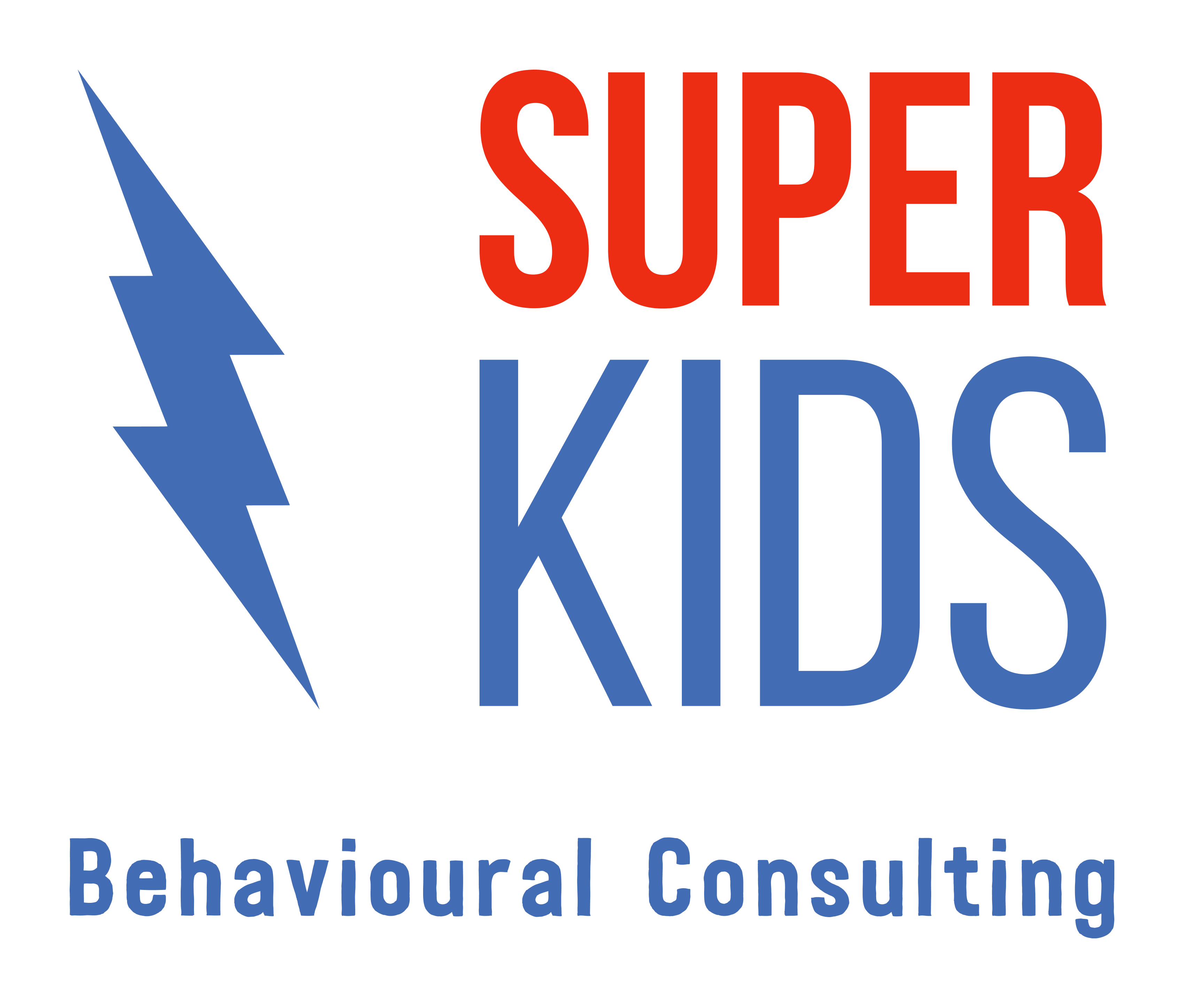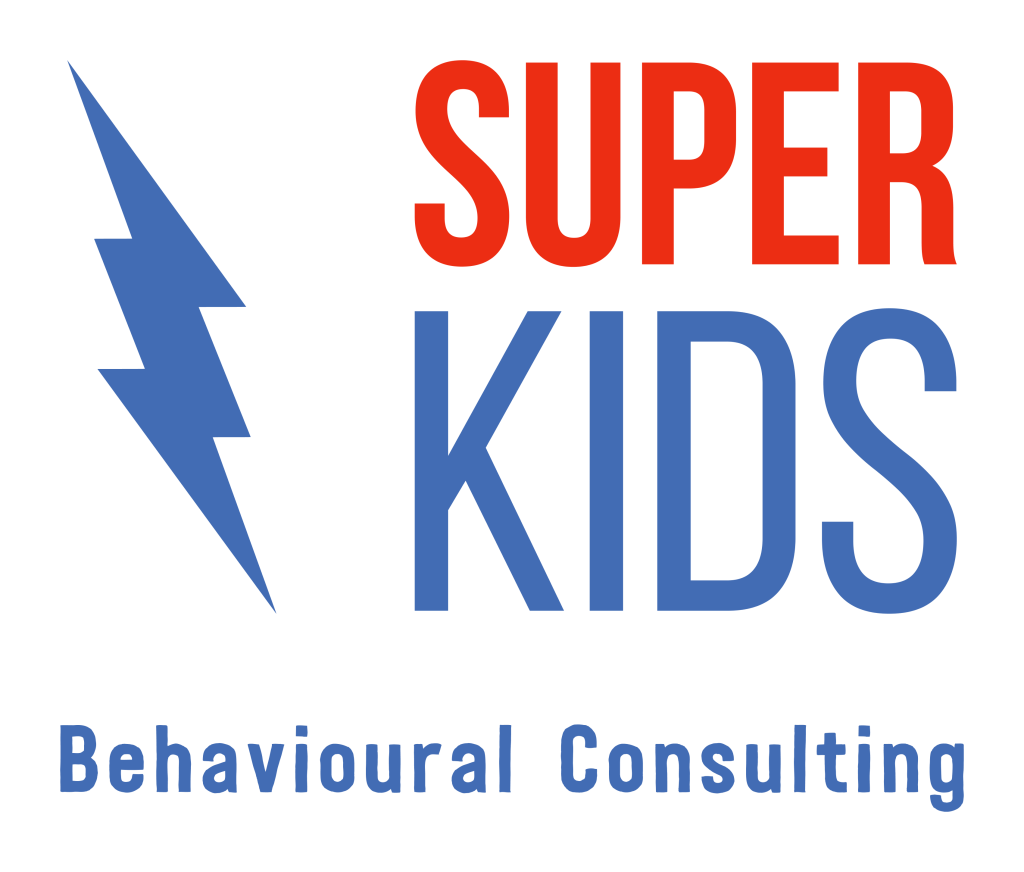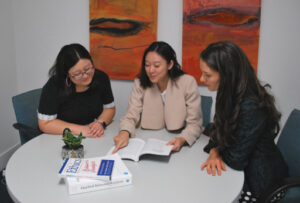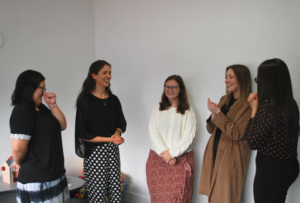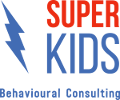Reducing challenging behaviours & producing meaningful progress through Practical Functional Assessment (PFA) & Skill Based Treatment (SBT).

Renee Collins
CLINICAL DIRECTOR
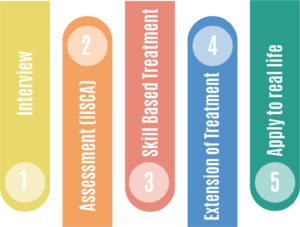
What is the Practical Functional Assessment and Skills Based Treatment process & why it is a useful treatment option
The enduring behavioural challenges exhibited by Autistic children or those with a developmental disability frequently result in families adopting highly restrictive lifestyles, which can detrimentally impact overall family functioning and the mental well-being of parents. For an Autistic individual or child with a related intellectual or developmental disability, challenging behaviours like self‐injury, aggression, or disruption will likely require intervention at some point in their life. Behavioural intervention (particularly using Practical Functional Assessment and Skill Based Treatment) has been proven to be effective for addressing these problems, especially if a functional assessment to find out the reason the behaviour is occurring is conducted by a Certified Behaviour Analyst (CBA).
Hanley and colleagues. (2014) have described and validated a distinct set of assessment and treatment procedures for addressing and improving severe challenging behaviour exhibited by children. This included a practical functional assessment process, which included:
- An open-ended interview and an assessment called an interview-informed synthesised contingency analysis (IISCA)
- And, skill-based treatment (SBT) which is an individualised treatment plan based on the results of the practical functional assessment process.
- The final step in the process is extending these procedures and outcomes to relevant caregivers in the child’s daily environment.
Skill Based Treatment takes a trauma-assumed approach, it recognizes the impact of trauma on individuals and integrates this understanding into the treatment process within SBT involves creating a safe and supportive environment that promotes healing, empowerment, and resilience. holistic and individualised approach to skill development and behaviour change.
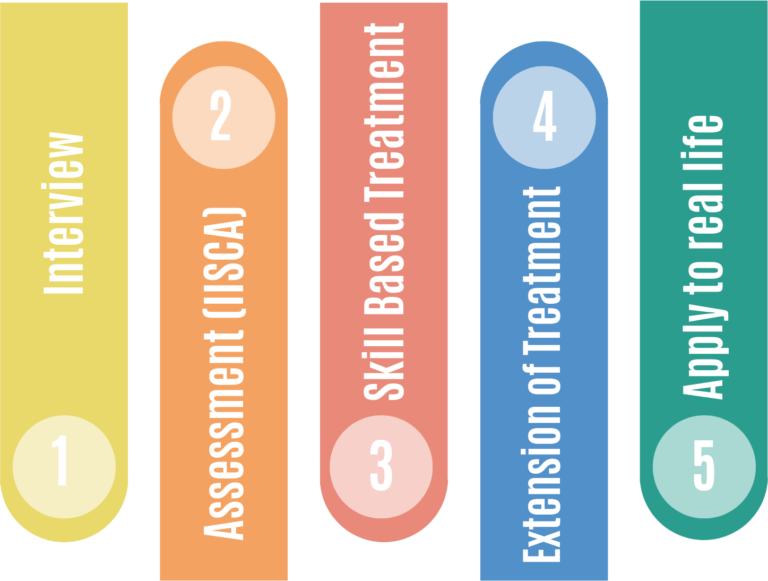
PFA Step 1: Initial interview with parents & carers
The Practical Functional Assessment and Skills Based Treatment process is an individualised process that begins with an open-ended interview with the child’s caregivers and then an assessment (Interview Informed Synthesised Contingency Analysis; IISCA) with the child. The purpose of this interview and assessment is to find out why the behaviour is occurring and then inform intervention. It is also to establish trust, build rapport, and ensure that zero challenging behaviour and high levels of engagement are achieved. The initial interview will take 45-60 minutes. Usually your child will not attend this meeting as we will be discussing their challenging behaviours and may occur in-person at Super Kids HQ or online. All relevant stakeholders, such as parents, carers, therapists and teachers are invited to attend and contribute to this interview.
The main information that we aim to gather in the interview is:
- What is the target challenging behaviour you want to decrease?
- What are the warning signs (precursor signs) that the behaviour is about to happen?
- When is it most likely to happen?
- What can you do to make it stop?
- What does your child’s Happy, Relaxed and Engaged state look like?
- What skills would you like them to do instead?
PFA Step 2: The IISCA Assessment
After the interview we will design an individualised assessment that may take place at Super Kids HQ, home or school. The IISCA assessment process is safe and dignified for the child as the clinician does not need to see the severe challenging behaviour in order for the assessment to be conclusive. The priorities in the process are always safety, dignity, and rapport. Inferences about the reason the dangerous or problem behaviour occurs can be made by analysing less dangerous behaviour – the warning signs that the behaviour is about to occur (precursor behaviour) (Najdowski, Wallace, Ellsworth, MacAleese, and Cleveland, 2008).
The actual assessment takes about 20-30 minutes with your child and the clinician and parents are asked to remain to observe the assessment too. During the assessment your child will begin “hanging out” with all of their preferred things in their preferred way and the clinician will be available. We will set up a space, based on parent and caregiver feedback, that is a context in which your child will be happy, relaxed, and engaged, one in which they will feel safe and in control. We will fill this space with all of the objects and activities that they love! Since this has all of their favourite things, in the way they want it, we expect there to be zero problem behaviour.
Once your child is happy, relaxed and engaged (HRE) the clinician will signal to the child and then slowly do something that usually will set the scene for the challenging behaviour to happen, for example, pack away the iPad and come do academic work or interrupt repetitive play. As soon as there is a warning sign that the challenging behaviour may occur, the clinician “changes their mind” and takes back the instruction and returns all reinforcers so the child is happy again. In the above example, this may then be giving back the iPad and packing away work, or allowing the child to engage in repetitive activities.
This assessment is based on the assumption that people usually escape not only from things but also to things. We need to consider the whole context from which problem behaviour developed or is maintained. The clinician is attempting to recreate the specific situation parents and teachers describe as evoking problem behaviour and the specific consequences parents and teachers describe as turning off problem behaviour at the moment. This process will then be repeated 3-5 times and we expect that we will be able to “turn on the behaviour” and then “turn off the behaviour” through the actions of the clinician and all of the things that they add or remove from the child’s environment. If this is possible, then we have validated the clinical team’s assumptions about why the behaviour is occurring.
This control over challenging behaviour is necessary to inform effective behavioural intervention. This is then the end of the assessment and we will finish with some more time with your child being happy, relaxed and engaged. The assessment can be ceased at any time if the Behaviour Consultant deems it unsafe to continue, or at parent request.
The analysis assessment then sets us up to develop a skill-based treatment capable of teaching your child and getting meaningful outcomes. At the end of the assessment will now know:
(a) a powerful condition (what to add and/or remove) to teach your child to request
(b) a challenging condition (what to add and/or remove) to teach your child how to tolerating delays and denials of reinforcers, and
(c) a condition (what to add and/or remove) to encourage motivation to complete adult instructions during delays
PFA Step 3: Intervention using Skill Based Treatment (SBT)
Skill Based Treatment (SBT) is one of the intervention options we have at Super Kids and is often during the Practical Functional Assessment process. There are other intervention options and the decision to proceed with this type of intervention will be discussed and agreed with carers. During Skill Based Treatment your child will learn how to appropriately ask for what they want in the way they want it, tolerate when this request is denied and cooperate with adult-led instructions for increasing durations in the absence of problem behaviour.
“This treatment process is one in which the starting point is a happy, relaxed, and engaged Autistic person. The themes of I see you, I hear you, I understand you, and I am here for you persist throughout the entire process. It bears repeating that there is no obligation to teach while children are upset in any way or under any duress…Ours is to prioritise safety, rapport, and the televisibility of what we do above all else. We have proven that meaningful outcomes can follow when we prioritise these things” Hanley, 2020.
Skill Based Treatment involves using the information gathered from the IISCA assessment to systematically and progressively teach social skills such as communication, toleration, and cooperation with adult instruction. During this process we will be communicating to your child through the way we set up the environment and deliver instructions that do not need to comply against their will and they do not need to escalate to escape or avoid the things they don’t want or to get the things they do want. We aim to empower your child to achieve positive behaviour change and skill development by making them feel safe, validated, and respected throughout the treatment process.
At the beginning of the treatment intervention, the target challenging behaviour is initially replaced with a more efficient form of communication. This is often called functional communication training or FCT. This may be a sign, vocal response or form of augmentative and alternative communication (AAC) or a combination of these, depending on what is most appropriate for your child. This simple communication response is then shaped and expectations are increased to be more developmentally appropriate and capable of being understood and acted upon by others. This could be by increasing the amount of words used to communicate or also getting the listeners attention before making the request to ensure that they’re listening. During intervention, your clinical team will usually select 2-3 behavioural repertoires that you’ll focus on at a time. For example, play, leisure, academics, communication or motor skills. Over time, important leisure, academic, or vocational skills will continue to be included and built upon.
All teaching trials will involve your child communicating, tolerating, pausing playing with their preferred items (reinforcers), and moving to a context or setting in which learning will occur (such as a table for academic work or bathroom for daily living skills). Once in this setting, then may then begin learning or completing tasks in this area.
PFA Step 4: Extension of Skill Based Treatment
Final steps of the program is to extend it into daily life, with your child’s carers and environments they’re in. When beginning the process extending into new environments (such as, home or school) and to new individuals (such as, teachers, therapists or parents), we only change one thing at a time. For example, if the treatment is being extended into a new location, the current implementers run the sessions while the learner generalises skills in the new space. Changing only one of these variables at a time allows for analysis of potential effects on synthesised reinforcement and the extent to which the child is happy, relaxed, and engaged in the new context.
PFA Step 5: Apply the intervention to real life
We also increase the amount of time that the child is required to cooperate and engage with tasks. The very important goal of SBT is to teach learners skills for when preferred items and activities are unavailable for an undetermined period of time (Coffey, Shawler, Jessel, Bain, Nye & Dorsey, 2020).Stretching the length of time your child completes an activity provides greater balance between following the child’s lead and the child following the adult’s lead in play or a task. This is achieved by teaching your child to engage in other activities for progressively longer periods of time before returning to their reward break time. Typically, this is extended by adding more actions within the task (e.g., putting more pieces in the puzzle) but extending the time in the activity can also be effective (e.g., riding the bike for longer).”
Overall, do consider how Practical Functional Assessment and Skills Based Treatment could be incorporated into your child’s therapy program to help them be ready to learn and minimise any dangerous or problem behaviours.
Super Kids acknowledges each individual’s personal preference to use identity-first or person-first language to describe themselves or their loved one. We interchangeably use both language conventions and therefore refer to both Autistic children and children with Autism.
